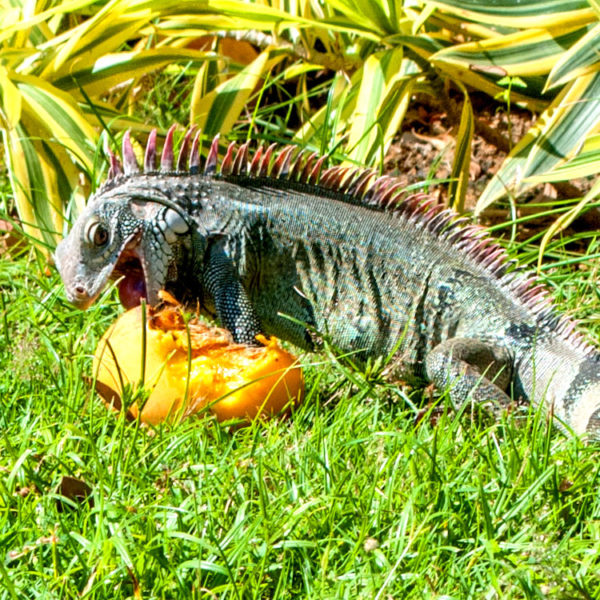Iguanas in Florida
Florida Iguana Facts
Although not native to Florida, iguanas thrive in the warm South Florida climate.
As a result, these prolific reptiles have become a nuisance to some Florida residents who make the unwelcome discovery that they are not only living, but breeding, on their properties. There are three species of iguana that have become established in South Florida – the Mexican spiny-tailed iguana, the black spiny-tailed iguana and the common green iguana. They have adjusted well to the state’s habitat, breeding several times a year and living up to 20 years in the wild. In fact, state biologists have estimated their numbers to be in the hundreds of thousands.
Iguanas are typically not aggressive, but they will defend themselves against people who try to trap or corner them. This can include biting, scratching or striking with their powerful tails. They can also wreak havoc on your valuable plants, shrubs, trees and flowers, which, as herbivores, they use as a food source. Unsightly droppings are also an issue with iguanas, which can be a possible source of salmonella bacteria.
Unfortunately, there is not much that can be done about iguanas. The only thing that seems to control their population is an especially long and cold winter, which is not common in Florida. It is legal to trap these reptiles humanely, however, the law prohibits you from relocating them elsewhere in the state. Once captured, you have two options – you can keep them as a pet or find someone who will humanely euthanize them. Hiring a trapper is also an option, but often a frustrating one as iguanas are elusive. Many wild life trappers will warn you that as soon as one iguana is removed, another will take its place.
